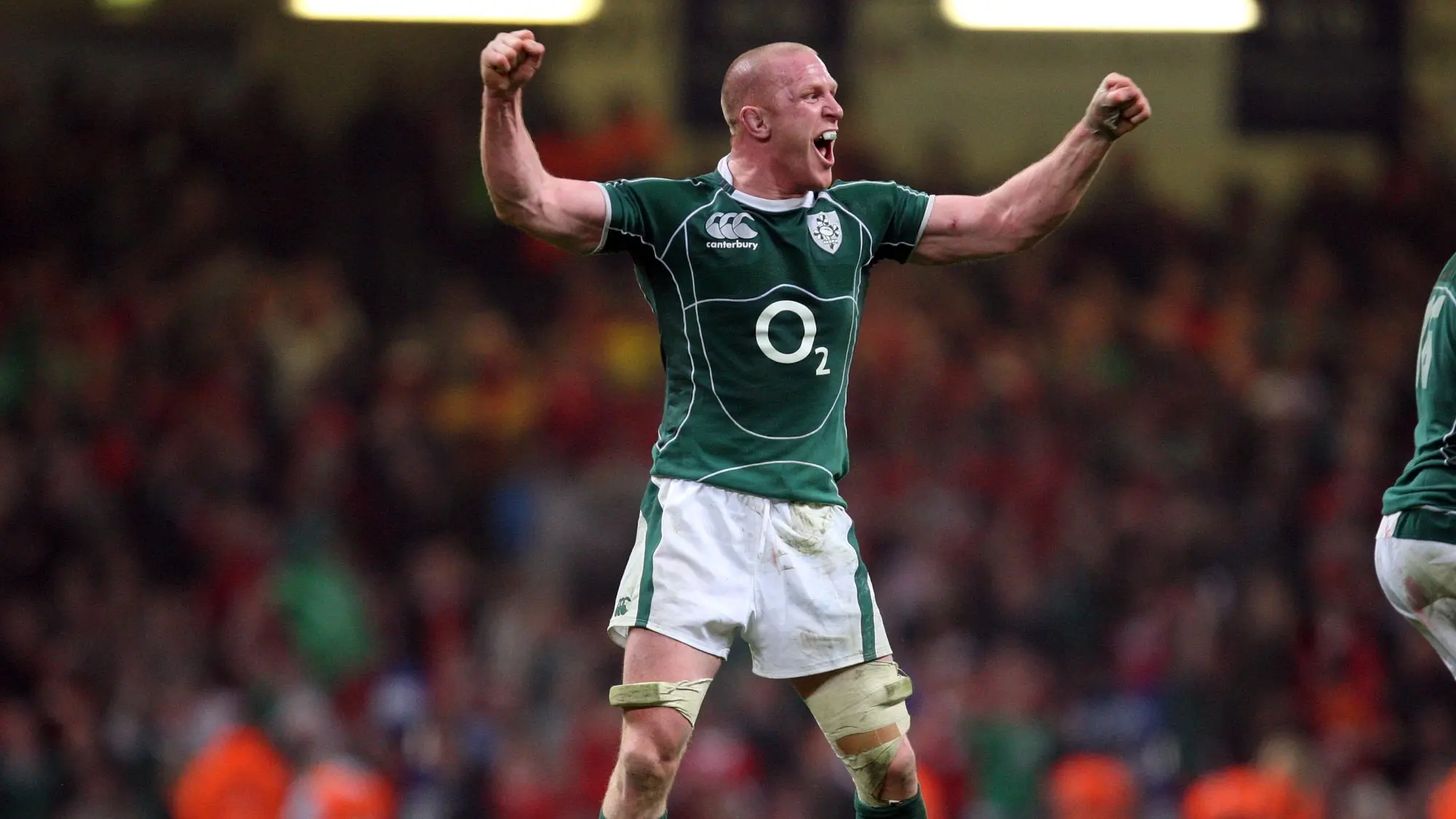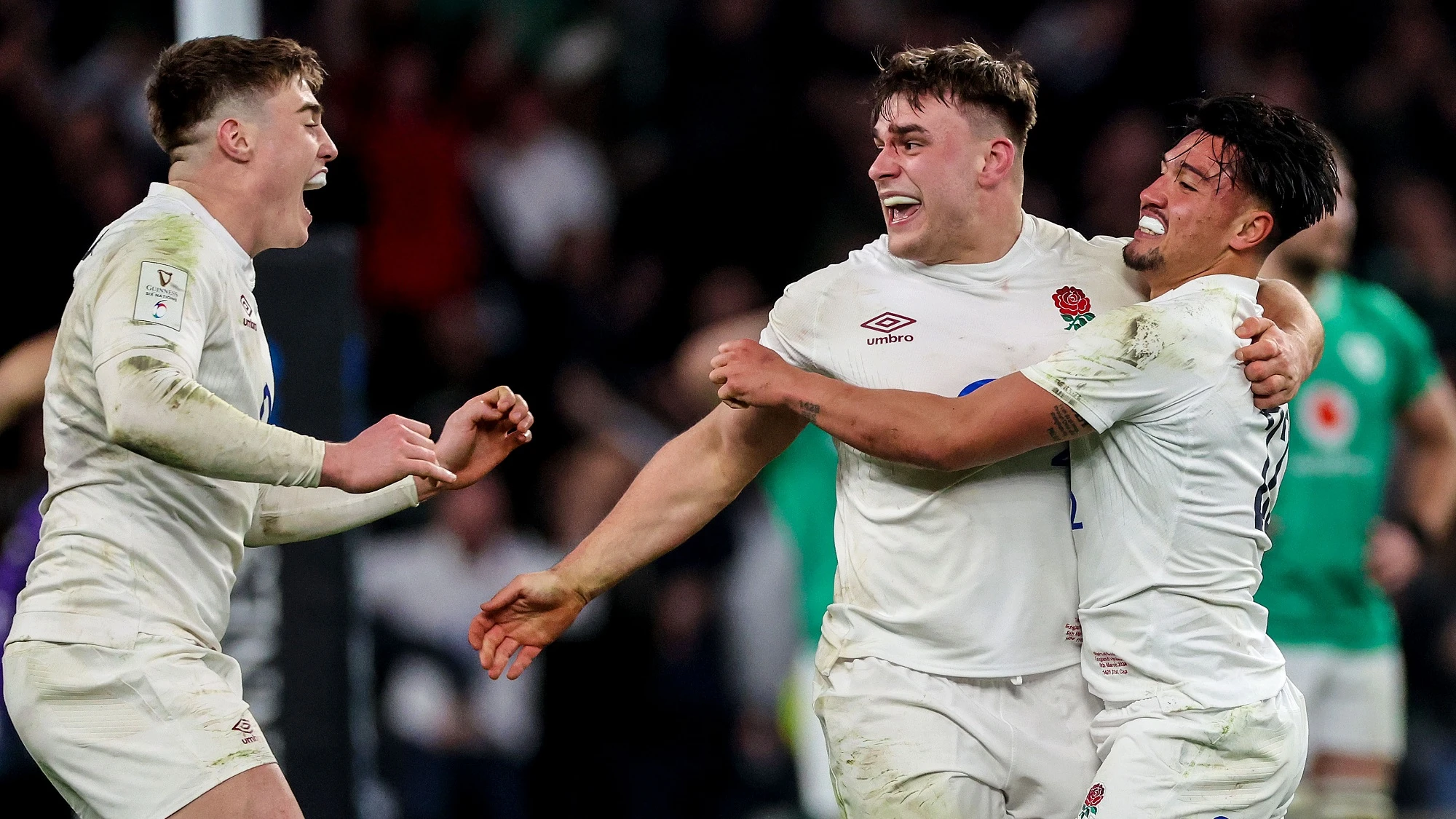Paul O’Connell’s status as a legend had been secured many years before but it seemed fitting that following his final appearance in the competition, the lock was named Six Nations Player of the Championship.
That came in 2015 after one of the most exciting final rounds in Championship history, with Ireland, England and Wales all competing for top spot on Super Saturday.
Ireland eventually lifted the title on points difference from England – they finished a collective six better off, with Wales just a further four adrift of Stuart Lancaster’s men.
O’Connell’s typically talismanic performances during the 2015 Championship had helped steer his side to a second title in as many years and the totemic lock bowed out of rugby less than 12 months later as one of the all-time greats.
He is Ireland’s fifth most capped player with 108 international appearances, won seven more for the British & Irish Lions, was an IRB Player of the Year nominee in 2006 and retired as one of the most universally admired European internationals ever.
His Six Nations career alone spanned 14 years, three titles, one Grand Slam and one Player of the Championship gong as he terrified opponents, tormented opposition line-outs and led his country with ferocious passion.
The definition of both a legend and an all-time great.
Born in Limerick, O’Connell attended the Model School and Ardscoil Rís, where he was initially more focused on swimming, with his height, broad physique and natural power making him a natural in the pool.
He only took up rugby as a 16-year-old but soon played for his school in the Munster Schools Senior Cup and then represented Irish Schools in 1997-98 alongside future international teammate Gordon D’Arcy.
Academically bright, he completed three years of a Computer Engineering degree at the University of Limerick before deferring the remaining year to focus on rugby – a decision, it’s fair to say, that reaped dividends in the years ahead.
Having made his Munster debut in August 2001, O’Connell’s international debut came against Wales during the 2002 Championship – and he made his presence felt.
Despite being caught by a stray Craig Quinnell elbow while making a tackle after just 14 minutes, he still managed to dot down a first Test try before being hauled off shortly before half-time.
The fiery-haired Munsterman had made an immediate impact on the international stage and would continue to do so for over a decade more.
A natural leader, O’Connell captained Ireland in the absence of regular skipper Brian O’Driscoll in the opening match of the 2004 Championship – a defeat to France in Paris.
He helped Ireland claim a first Triple Crown in 19 years during that Six Nations, a feat they repeated two years later, and was a shoo-in when the British & Irish Lions squad to tour New Zealand was named in 2005.
A scintillating 2006 was arguably the lock’s best year yet as in addition to the Championship Triple Crown, he led Munster to European glory in the Heineken Cup, scored the final try at the old Lansdowne Road before it was demolished (in a 61-17 triumph over the Pacific Islanders) and was nominated for the IRB Player of the Year.
All Black Richie McCaw eventually won the award but O’Connell’s brilliance was acknowledged on the global stage and he then made more history in 2007, when captaining Ireland for their first ever match at Croke Park – against France.
The following week he produced a man-of-the-match display in an emotional 43-13 win over England at the same venue but arguably his career high point in the Championship came two years later in 2009.
That first Grand Slam in 61 years for Ireland will go down in Championship and sporting legend – and it’s no surprise that O’Connell was at the heart of it.
In the tense 17-15 victory over Wales that clinched the clean sweep, O’Connell was a behemoth in the lineout, repeatedly pinching Welsh ball.
And the only time he showed the magnitude of the occasion was when he could not bear to look as Stephen Jones lined up a 50-metre penalty attempt to deny Ireland their first Grand Slam title since 1948.
However, the kick dropped short, history was made and Ireland’s indomitable second-rower had reached another pinnacle.
He was then given the honour of being named Lions skipper for the 2009 Tour to South Africa – one of the most famous and brutal Test series of all-time.
O’Connell couldn’t stop the Lions falling to an agonising 2-1 defeat to the Springboks but he would go on a remarkable third Lions Tour four years later when there was more joy for the northern hemisphere outfit – as they beat Australia 2-1.
O’Connell also showed his incredible resilience and willpower during that Tour as he played on during the first Test against the Wallabies with a fractured arm, although the injury ruled him out of the subsequent two Test matches.
Joe Schmidt’s arrival from Leinster marked a new era for Ireland with O’Connell taking over as permanent captain.
And after waiting so long to clinch his maiden Six Nations title, O’Connell and Ireland were victorious again in 2014, five years after their Grand Slam triumph.
In losing to England at Twickenham, they became the first home nation to win outright while another claimed the Triple Crown and the lock claimed his first trophy as skipper.
At 35 years old, some may have thought Ireland’s captain’s best years were past him, but in 2015 O’Connell rolled back the years to lead the men in green to their first outright title defence in 66 years.
Not only did the Munsterman oversee a period of unprecedented success for his country, but he marked what would be his Six Nations swansong by being named 2015 Player of the Championship – with 26% of the public vote.
His impressive ability to rise to the occasion was evident again on that unforgettable Super Saturday when he dived over for a rare try after just three minutes at BT Murrayfield to establish the momentum that would lead Ireland to a 40-10 title-clinching victory against Scotland.
He retired from rugby the following year due to a hamstring injury sustained at the 2015 Rugby World Cup but his legend was long since secured and he truly is one of rugby’s all-time greats.



